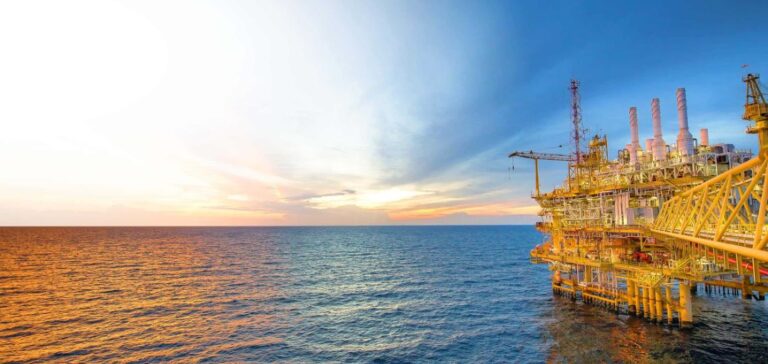South Africa is seeking to accelerate the development of its oil and gas resources, estimated at 27 billion barrels of oil and 60 trillion cubic feet of natural gas, according to the Petroleum Agency South Africa (PASA). This objective was reaffirmed by Minister of Mineral Resources and Energy Gwede Mantashe during the fourth Southern Africa Oil and Gas Conference held in Cape Town. He highlighted that developing these resources could enable South Africa’s economy to reach a growth rate of 5%, or even 8%, while increasing fiscal revenue.
Government support reiterated for exploration projects
In February, Tseliso Maqubela, Deputy Director-General of the Department of Mineral Resources and Energy (DMRE), had already urged Parliament to support exploration in the Orange Basin, a geological zone shared with Namibia. This political momentum comes as several companies show growing interest in South Africa’s offshore areas, bolstered by recent discoveries in the Namibian portion of the basin that have revived expectations for new commercially viable reserves.
To structure the development of these resources, the government plans to establish the South African National Petroleum Company (SANPC), through the merger of PetroSA (oil), iGas (gas), and the Strategic Fuel Fund. This public entity is expected to drive the national energy strategy forward.
International companies expand their footprint
Several foreign firms have positioned themselves in South Africa’s offshore blocks. In June 2024, Eco Atlantic, through its subsidiary Azinam South Africa, acquired a 75% stake in Block 1, with a three-year exploration programme scheduled. That same year, TotalEnergies acquired a 33% stake in Block 3B/4B, partnering with QatarEnergy, Africa Oil South Africa, Azinam, and Ricocure. In February 2025, Brazilian firm Petrobras confirmed that South Africa was part of its upstream expansion strategy.
Technical and economic hurdles ahead
Despite this momentum, the development of South Africa’s oil and gas sector remains subject to several uncertainties. Before production can begin, the economic viability of the projects must be confirmed and the full scope of the reserves clarified. Technical, financial and environmental challenges will continue to influence the pace of implementation. For now, the stated ambitions are part of a long-term strategy requiring close coordination between public and private stakeholders.






















